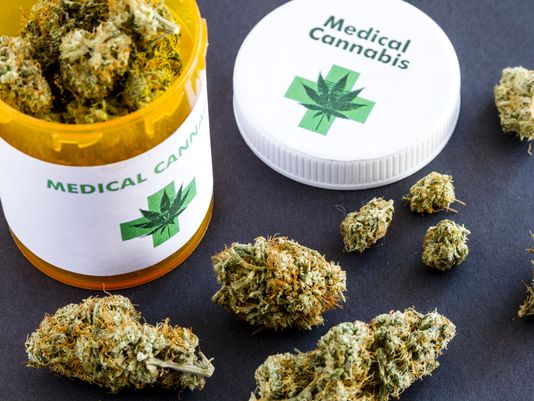Thailand has legalized Medical Cannabis in 2019 for prescribed medical use only. The penalty for recreational use of cannabis in Thailand a very serious matter, where those found in possession of 10 kilograms of herb or less can expect to do up to five years in prison. Anything more and you’re facing life in prison. No information is currently available on the process of obtaining Medical Marijuana and details will follow in 2019.
Here’s our list of the 10 most common conditions Medical Cannabis was prescribed for during 2018, outside of Thailand
- Multiple Sclerosis: is a disease that affects the brain and spinal cord. Symptoms vary both in type and severity, but typically include pain, spasms, balance issues, tingling, vision problems and more. Cannabis based medicinal extracts can significantly reduce the spasticity and pain associated with Multiple Sclerosis while having few adverse effects on patients.
- Spinal Cord Injury: Caused by trauma to the spine, spinal cord injuries are known to affect motor skills and can potentially lead to a total loss of function in some parts of the body. Research suggests cannabis can help patients treat the pain and muscle spasms that are often symptomatic of a spinal cord injury. Cannabis medicinal extracts can improve neurogenic symptoms unresponsive to standard treatments.
- Spinal Cord Disease: Multiple Sclerosis, Spina Bifida, Syringomyelia and Spinal Stenosis can all be considered examples of spinal cord disease. Patients living with a spinal cord disease may find therapeutic value in using cannabis based medicine, thanks to cannabis’ ability to alleviate spasticity and pain – two of the most common symptoms associated with spinal cord disease.
- Cancer: While cannabis cannot cure cancer (yet), it can drastically reduce the severity of symptoms and improve quality of life for patients. THC and CBD (two of the key active components found in cannabis) can stimulate appetite, which may help with the weight loss, anorexia and cachexia that many cancer patients experience. In addition, cannabis is very effective at combating the nausea caused by conventional cancer treatments such as chemotherapy.
- HIV/AIDS: Modern therapy allows those with HIV/AIDS to live a long and mostly healthy life, the side effects of the treatment can be challenging to deal with. This is where medicinal cannabis comes in. A number of studies show that medical cannabis can improve many HIV/AIDS-related symptoms, including anorexia, weight loss, and severe nausea.
- Arthritis: There are more than 100 different types of arthritis, with some of the more common types including osteoarthritis, rheumatoid arthritis, and psoriatic arthritis. Symptoms typically include swelling and redness around the joint, reduced range of motion, stiffness, weakness and severe, ongoing pain. It’s the latter symptom that cannabis is most effective at treating.
- Epilepsy: The disorder is characterized by seizures, which range from relatively mild (a moment of impaired concentration) to extreme (total loss of consciousness and awareness). Cannabis based medicines – and CBD-dominant products in particular – have proven to be very effective at reducing the frequency and severity of epilepsy seizures. With that said, medical cannabis should only be used in treatment resistant cases of seizures.
- Inflammatory Bowel Disease: Describes disorders that result in inflammation of the digestive tract, including Ulcerative Colitis and Crohn’s Disease. Research has found that IBD patients experienced a variety of health benefits from using cannabis. Factors such as physical pain, social functioning, general health perception, ability to work and depression all saw notable improvement.
- End of Life Care: Studies have shown that medicinal cannabis may also be an effective treatment option in palliative care, which could be vital in the years ahead as many nations come to terms with aging populations. Research published in Current Oncology found that medical cannabis could “provide further relief from distressing symptoms and spiritual suffering”, while improving patients’ overall quality of life.
- Insomnia: THC- and CBD-dominant cannabis based medicines offer effective therapy for a range of sleep disorders, including insomnia. Cannabis is thought to reduce sleep latency, induce drowsiness and improve quality of sleep.
This year we’ll see how this industry forms in Thailand and how patients will be able to obtain subscriptions for the above mentioned conditions or any others which could benefit from this form of treatment, but expect a slow and long journey, as was the case in North America – for more information on Medical Cannabis procedures in Thailand, submit your details through MyMediTravel and one of our support team will be in contact with you. It’s worth noting that it may take several months before licensed physicians are ready to prescribe medicinal marijuana products.

